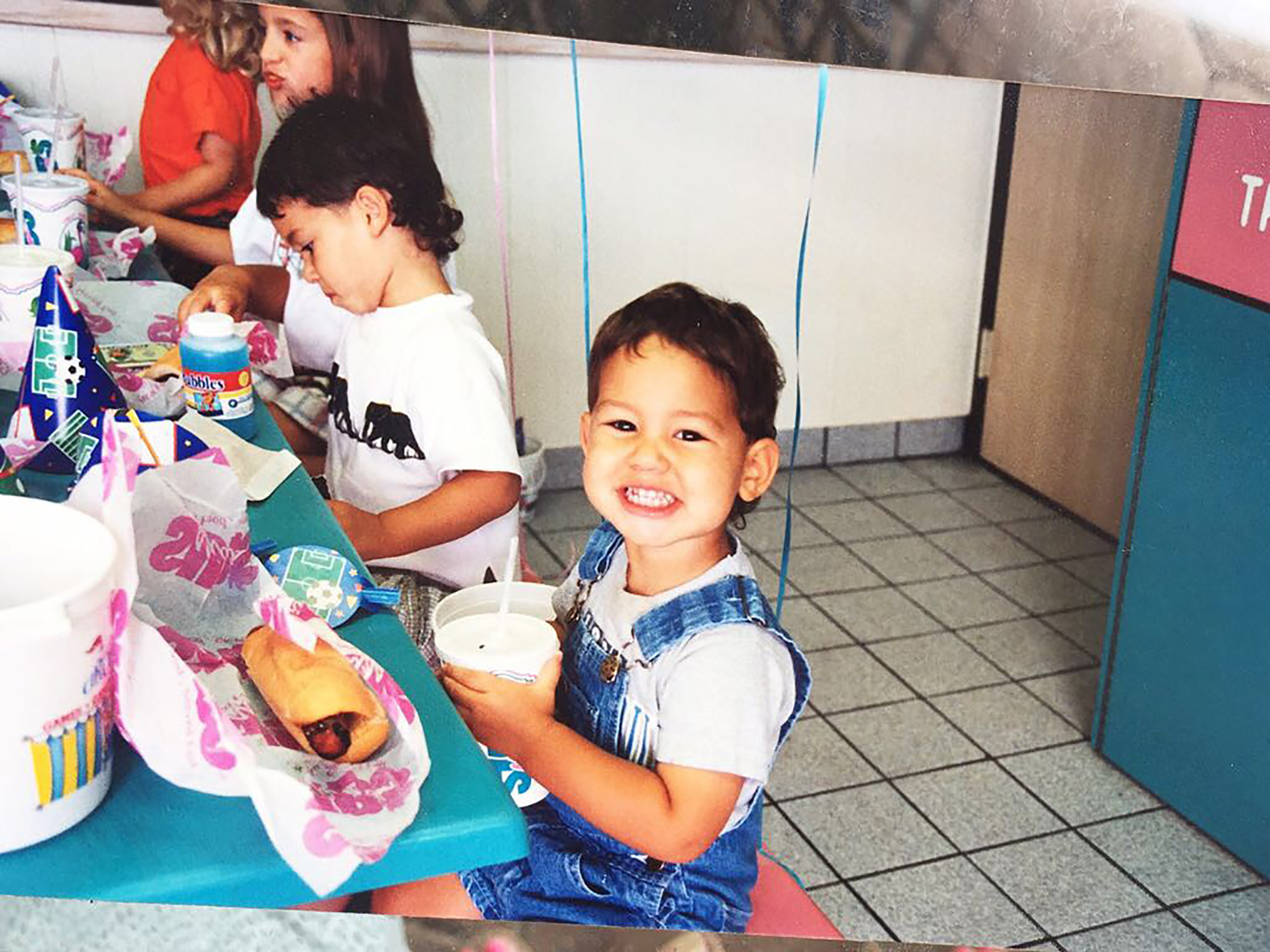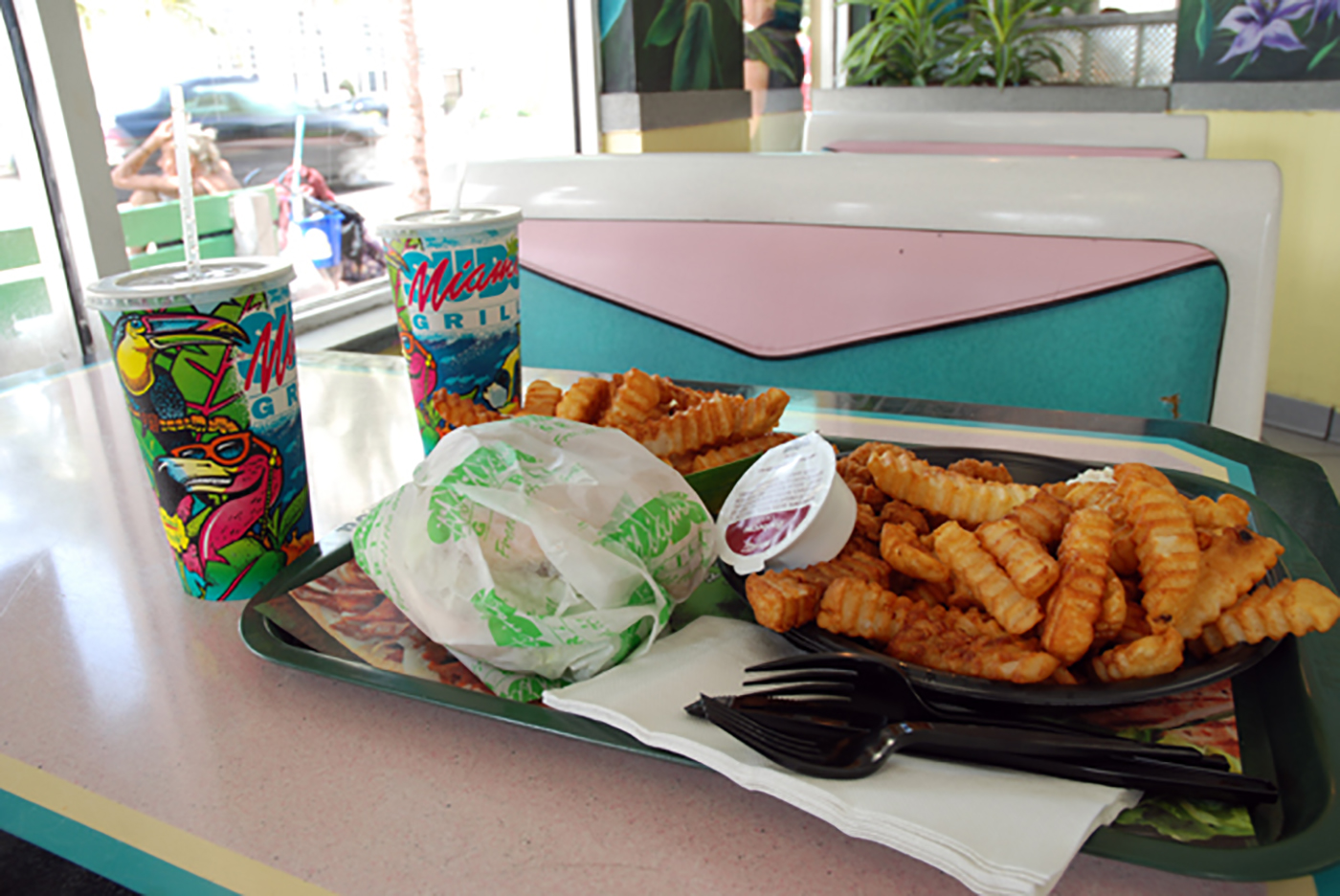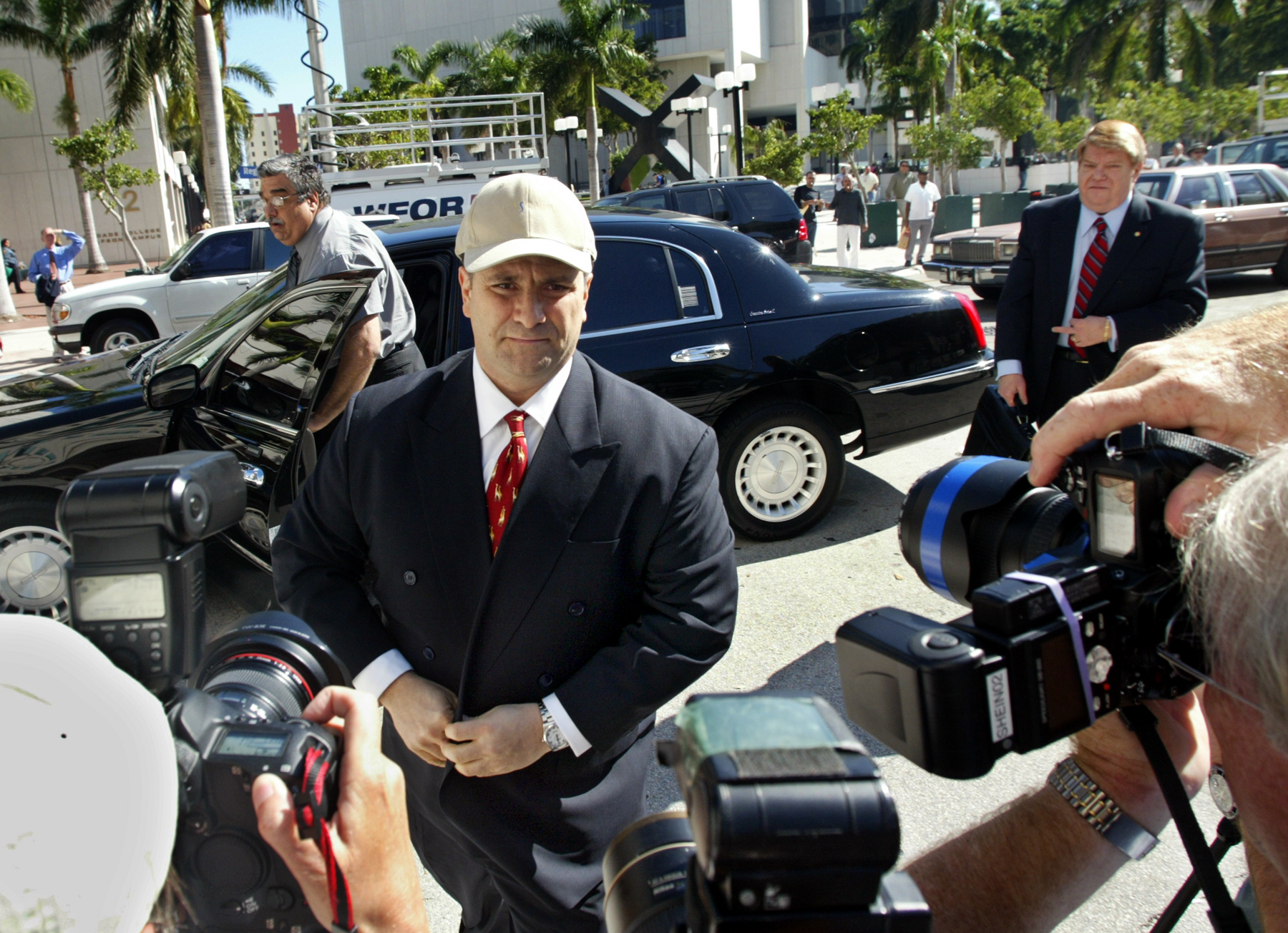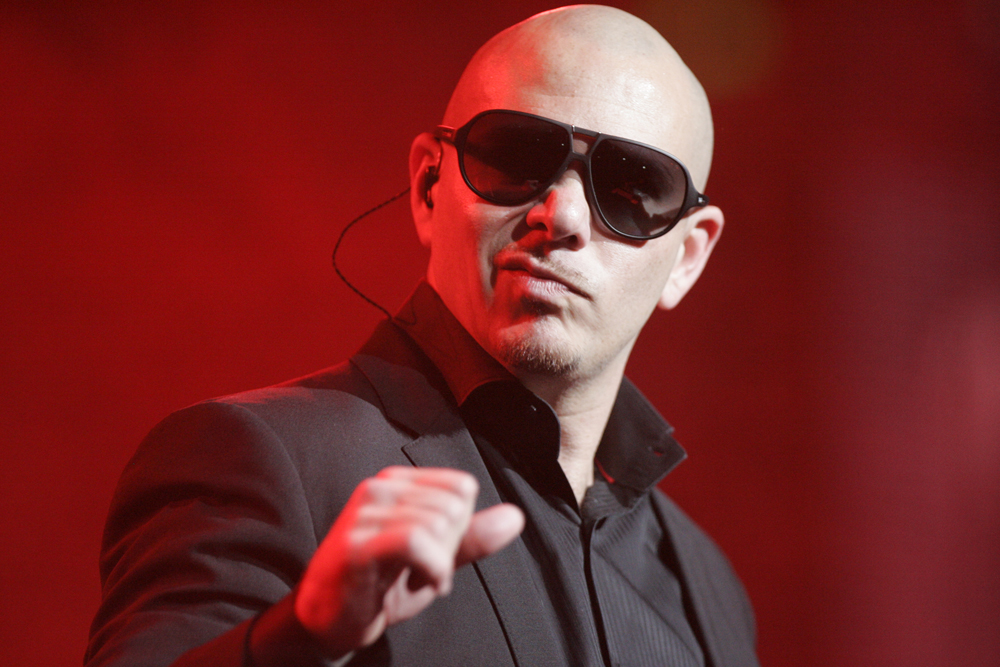Nothing in life becomes nostalgic as easily and profoundly as food, and perhaps no food does so more strongly than a tuna sandwich.
OK, maybe that’s not a universal truth, but for me and for millions of other people who grew up in South Florida in the 80s and 90s, Miami Subs represents that particular time and place better than any TV show, family photo album, or rendition of 69 Boyz’s “Tootsee Roll” ever could. With its tropical neon colors, staff in floral tourist shirts, and Key lime pie, the sandwich chain was designed to be the culinary representation of the region.
Videos by VICE
But in my youthful naiveté, I didn’t realize just how uniquely Floridian Miami Subs was and continues to be. And I’m not just talking about the art deco decor. From the Mafia-ridden criminal underbelly to a particular white linen suit-clad Cuban-American rapper, this is the story of how a fast food sub chain came to be the epitome of the America’s weirdest state—or, as Florida is sometimes known due to certain geographical and cultural features, America’s penis.

I should begin by disclosing earnestly that I loved Miami Subs. I had my second birthday party there. Their kids meal was served in a bucket, and when I was a toddler there was a period of multiple months during which I wore that bucket atop my head every day. That is true. Although I’m sure the whole menu was top-notch, I remember the fries—thick-cut, and a deep orange color from a seasoning blend that may have been inspired by Caribbean blackening spices—as particularly sublime.
I was far from alone in my devotion to Miami Subs. During its peak, the chain was wildly successful. By the mid-90s, there were nearly 200 locations, mostly in Florida. The clientele ranged from the average Floridian to the state’s de-facto royalty. “I had [golfing legend] Greg Norman pull into my drive-through in his Rolls Royce and get wings and a bottle of Dom,” said Steve Klass, EVP of Marketing and a former franchisee in Palm Beach Gardens, Florida. “I also had Jack Nicklaus.”
READ MORE: How a Pot-Dealing Suburban Boy Became Miami’s Best Baker
That’s right, Dom—as in Dom Pérignon, the luxe Champagne—was, and still is, sold amongst the more standard casual fare. “Back in those days, there was a package, like 20 wings and a bottle of Dom for… I think it was, like, $99,” said Jackie Maceda, Director of Marketing. “And because Miami Subs has always known to be open late, the celebrities would wait when they’d get out of their clubs and get their wings fix, and it was quite a treat to be able to get a bottle of Champagne with your wings at that time of night.” Apparently, Madonna was one of these customers. “That’s the lore,” said Klass.
Everything about Miami Subs, from the decor and menu to the prolific expansion and profits, can be credited to Konstantinos “Gus” Boulis. Like most residents of Florida, Boulis came from elsewhere. Born in northern Greece, Boulis ditched the merchant marines in Canada, where he helped build a different sub chain, becoming fantastically wealthy by his twenties.

A young Boulis relocated to Key West, where in 1980 he opened up a restaurant called Mr. Submarine. Apparently smitten with his adopted home, he eventually changed the name to Miami Subs and adopted the aesthetically Floridian theme. “Back in the early days, he knew a Key West artist, and this artist would hand-paint the interiors of each one of our restaurants with all kinds of Florida tropical scenes, underwater scenes, underwater life, manatees,” said Klass. And although Miami Subs was Floridian through and through, Boulis paid homage to his own Greek heritage through the inclusion of gyros.
Boulis led the chain’s impression growth, as well as its evolution from Miami Subs to Miami Subs Grill with the expansion of the menu. And as the business chain flourished, so did its founder’s wealth. He owned a plane.
READ MORE: Some of Miami’s Best Tapas and Wine Are Inside This Gas Station
In 1999, Boulis sold Miami Subs Grill to the hot dog juggernaut Nathan’s Famous. He remained connected to the business through personal ties and consultancy roles, but his primary venture became a gambling boat company called SunCruz Casinos, which took patrons to international waters just outside the reach of Floridian gambling laws. (My peers will remember the annoying SunCruz jingle as well.) After a bit of contentious political wrangling, state officials decided to force Boulis to sell SunCruz, due to a law barring non-citizens from owning commercial vessels.
Enter Jack Abramoff. Yes, that Jack Abramoff—the lobbyist and con man at the center of the Bush era’s grandest corruption scandal. Abramoff and mattress tycoon Adam Kidan put in a bid to buy SunCruz for $147.5 million. They falsified a wire transfer, the business relationship between the buyers and the seller went south, and tensions arose. So Kidan hired Anthony “Big Tony” Moscatiello and his associate Anthony “Little Tony” Ferrari, mobsters with ties to the Gambino family and John Gotti, for protection.

On February 6, 2001, as Boulis left his office in his BMW, two cars boxed him in, forcing him to stop. A gunman emerged from the black Mustang beside Boulis’s car and shot the Miami Subs founder three times, killing him. Moscatiello had hired a hitman, and that hitman got the job done.
“It was shocking and very sad what happened to him, and it happened to him in such an outrageous fashion,” Maceda told me. “Everybody went to his funeral, everybody: all the franchisees, all the employees.” Shocking indeed. In my youth, I had no idea that the actual Mafia—featuring operatives with names like “Big Tony” and “Little Tony”—was operating in my backyard, all up in the business of my French fries.
Miami Subs languished after Boulis’s murder, whether causative or correlative. The company was bought and sold a couple of times, and the majority of stores closed as the 21st century settled in. But don’t fret, for either the sub chain or the place it represents. Miami and its Subs have a savior, and his name is Pitbull. Yes, that Pitbull.
“Pitbull grew up in our Lincoln Road Miami Subs writing music and eating gyro platters,” said Klass. “He loved the brand. When he started becoming big time, he reached out to us.” In July 2012, Armando “Pitbull” Pérez purchased a significant equity stake in Miami Subs Grill, buying himself a seat on the board of directors and the accompanying role of spokesman.
“We’re here to make Miami history, new Miami Subs history, and show the world what you can do when two great brands run parallel, coincide, collide, come together, and take over the world,” declares Pitbull in a promotional video. (Pitbull’s team declined requests for comment for this story.)
Maybe he’s right. In the era of Mr. Worldwide, Miami Grill (as it has been renamed) has established international expansion plans, both executed and in-progress. There are now locations in Yangon, Myanmar and Kuala Lumpur, Malaysia. The company is looking into the Middle East and South America.
ON NOISEY: We Spoke to the Fans of the Pitbull Cruise Before They Sailed Away with Mr. Worldwide
But how does the cultural mythology of Florida, so neatly and exuberantly packaged in each location of Miami Subs, translate in a place like Myanmar?

Pitbull has a lot to do with it. In both domestic and international locations, the rapper’s picture is plastered all over the walls and his voice dominates the speaker system. Maceda tells me that Malaysians particularly love Miami and Pitbull. But, as is fitting in a postmodern world, local flavor is integrated with the Floridian: The Myanmar location features grilled mutton on the menu and a group called the Ocean Drive Band performing international and Burmese hits six nights a week.
If Pitbull can evolve into Mr. Worldwide, selling the sound of Miami, then maybe he can help sell its food around the globe, too. But just as the success story of Miami and Florida is inextricably linked to the drug crime of the 80s and 90s, the area’s best sub chain has a similarly colorful past.
Tuna; French fries; strung-out celebrities ordering drive-thru Champagne; Mafia-led execution-style contract killings—that’s the stuff of childhood.
This article originally appeared on MUNCHIES in July 2017.
More
From VICE
-

Westend61/Getty Images -

Simone Joyner/Getty Images -

Youth Code -

Screenshot: Remedy Entertainment
